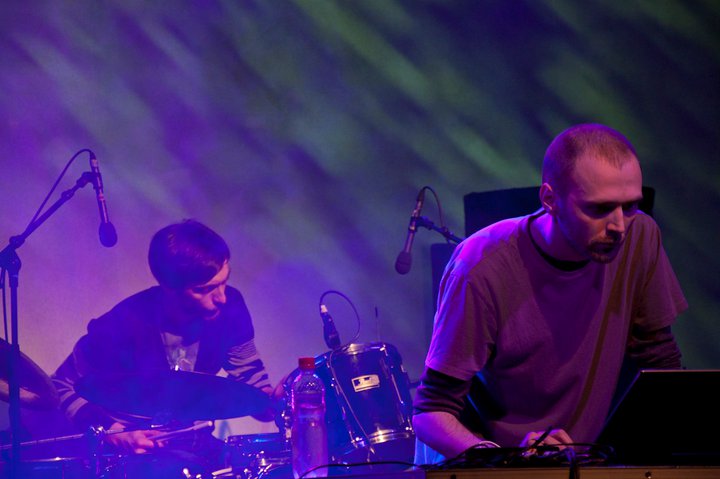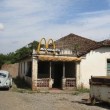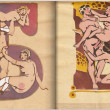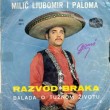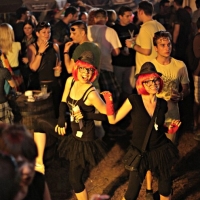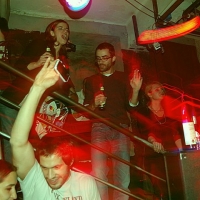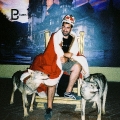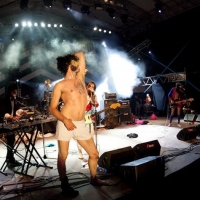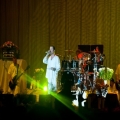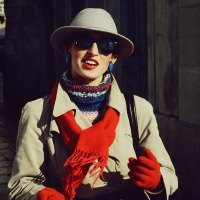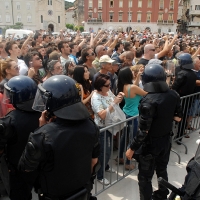With the Macedonian music scene dominated by uninspired rock bands, there are few artists out there who can claim their own original take on contemporary electronic sound. Dimitar Dodovski is Macedonia’s most exciting techno producer at the moment. Our editor and DJ Toni Dimitrov explains why
Last year, in an interview for Eastern Daze blog I was asked to note a few new artists of the year in Macedonia. Without any doubt, the first one I mentioned was Dimitar Dodovski. If you ask me why, the answer is simple. In the Macedonian scene, still driven by rock cliches, his sound is contemporary and fresh and his live sets differ from what you know as a classical electronic set up. Dimitar has been actively present on the electronic music scene through various compilation releases, appearing together with names such as Move D, Benjamin Brunn, Fluxion, Maps and Diagrams, at the same time recording tracks, remixes and EPs for well known net labels of the dub techno scene: Tropic, Inuoki, Yuki Yaki, Greenfields and even Neo Ouija, that brought him a wider publicity. He has entered 2012 with a release planned for the Japanese label Lantern (Martin Shulte, Arctic Hospital, Taylor Deupree), along with a single for Macedonian label Greenfields and a collaboration release for Post Global recordings.
Dodovski’s sound revolves around deep and beat oriented textures, with variations in minimal dub, dubtech, techno and house, with a number of experimental influences that make his original signature. Last year he had several great live performances together with Sashko Kostov on drums, resulting in powerful experimental-dubby, but still dancey, shows. He has shared the stage with names like Tarwater, Bomb the Bass and Tupperwear. When he performs as a DJ, his sets are an extraordinary collage of disco, afro, funk and techno. For this occasion, I asked him a couple of questions in order to get a simple idea of who he is.
Toni Dimitrov: Who is Dimitar Dodovski? Can you please introduce yourself to the audience, what’s your age, where are you located, how long have you been making music, your projects, etc.
Dimitar Dodovski: Born and raised in Bitola. Age 31. Making music for several years now, constantly finding new channels of influence and ways of presenting my work.
TD: What are your most important musical influences, and what about those that can’t be recognized in your music?
DD: My first and most direct influences were from music and sci-fi movies but as I grew older, I started putting everything from my everyday life experience into sounds. If we’re talking genres, I find jazz, afro, dub, krautrock, disco, etc, most influential.
TD: How did you get into electronic music in general and more specifically, techno?
DD: I was always into electronic music like Kraftwerk, Jean Michel Jarre, Art of Noise… since I find it closer to my way of understanding music – the idea of building sounds in order to manipulate with the states of consciousness. I don’t advice drug usage, I’m just stressing the power of sound and the way it affects our modes of perceiving our own presence in the environment. The electronic music has that function of projecting ourselves in a specifically designed state which is art / drug in itself unlike any other contemporary genres.
TD: How do your live set looks like? What’s the difference when you play alone and with a drummer? Do you allow a lot of improvisation in your live sets?
DD: The sets I’m playing are designs of multiple possibilities constrained in a frame. I mostly work on preparation of the frame in which I later improvise without having to be bored or unpleasantly surprised. That makes me feel like being an audience of my own sets, never knowing how it would end. The drummer always adds to a better communication with the audience, since their attention can’t be entirely fixed on a single person staring into the laptop or his gear. It’s also a good opportunity for me to witness how other musicians interpret my music on stage which is of great importance to me as an artist.
TD: What do you think about today’s rapid growth of experimental electronic music scene? Spreading and divisions of the styles, fusions, D.I.Y. CDR Labels… You are yourself somehow involved in all these aspects of the scene.
DD: The experimental music scene is growing in many directions and branches like a big family tree. It all started in late 90’s and early 00’s when computers were becoming less expensive and more and more capable of replacing a whole studio equipped with expensive gear which previously had been a privilege to rare (nevertheless, talented) people. There are lots of free plug-ins now that can emulate vintage synthesizers and the only limit is the imagination of the producer. The Internet also became faster and cheaper, with emerging portable audio formats influencing lots of start-up indie and net labels, generating quantity (and not always quality) of styles and genres.
TD: Most of your releases are on net labels, which means for free as mp3’s. What is your attitude towards mp3 as a format and net labels in general?
DD: There is a positive and a negative answer to this question. The negative answer is that netlabels aren’t always professional in their approach and quality can be often put into question. Mp3 is a practical format but compared to CD and Vinyl, it’s a ghost lacking in physicality which is a crucial element of respecting music as a work of art. The positive side is that netlabels can be a good introduction to new artists because their work can be easily accessed. The communication is based not on a financial interest but on enthusiasm, sharing ideas, friendship… and mp3 is part of that story.
TD: What do you feel about Macedonia from a music perspective? What is your opinion on the Macedonian music scene? Does it exist at all? Can you first define the term scene? What’s going on in the city of Bitola in this sense?
DD: A scene exists where there are common elements of thinking, feeling and behavior, fueled by a more or less an art form. And there are the people who keep that alive by constant work, managing events, presenting new music. Of course there is a scene in Macedonia, but it’s living in inertia of not having enough such people who dare to take responsibility despite the economic situation and create a necessary critical mass for making the scene solid. Common sense says that it’s better when you do it as a hobby rather than a profession. Bitola is no exception.
TD: What are the music plans for the near future? Any releases/gigs planed?
DD: Just got a release date for my next EP with remixes made by artists that influenced me a great deal throughout the years, along with a very interesting single release on our local Greenfields label, also with a remix… maybe an album before the end of the world, who knows. As far as gigs go, I’m planning to add another band member in my live performances. More info soon.

